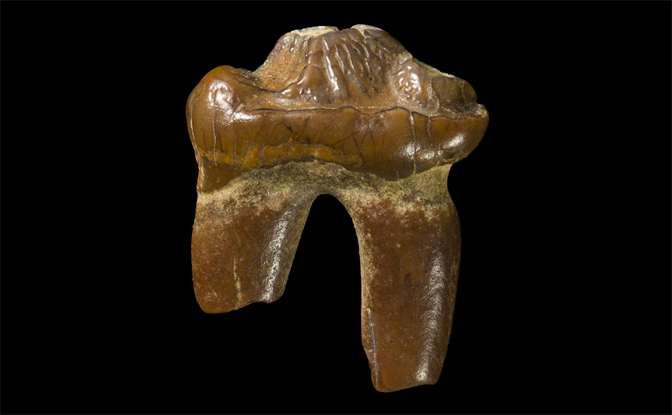Tooth be told: Earless seals existed in ancient Australia
Museums Victoria and Monash University PhD candidate, James Rule has discovered that a three-million-year-old seal tooth found in Portland, Victoria belongs to an extinct group of seals no longer found in Australia.
- A fossilised seal tooth, dating back approximately three million years, found on a Victorian beach proves earless seals existed in Australian prehistoric times.
- The seals became extinct due to rapid changes in sea level caused by changes to the Earth’s climate.
- This study was published by a team of scientists from Monash University and Museums Victoria.
A fossilised seal tooth found on a beach in Portland, Victoria could hold the key to uncovering the history and geography of earless seals that graced Australia’s shores three million years ago.
This prehistoric specimen is only the second earless seal fossil ever discovered in Australia. This proves the country’s local fur seals and sea lions were preceded by a group of sea mammals, known as monachines, now long extinct in Australia.
The study also highlights the current dangers of climate change to Earth’s existing wildlife, with falling sea levels likely to have played a role in the extinction of these ancient seals.
The history of this rare specimen was published in the Journal of Vertebrate Paleontology by a team of scientists from Monash University’s School of Biological Sciences and Department of Anatomy and Developmental Biology, and Museums Victoria, led by PhD candidate James Rule.
"This tooth, roughly three million years old, tells a story similar to what occurred in South Africa and South America in the past. Earless monachine seals used to dominate southern beaches and waters, and then suddenly disappeared, with eared seals replacing them," Mr Rule said.
"Since seal fossils are rare globally, this discovery makes a vital contribution to our understanding of this iconic group of sea mammals."
An Australian citizen scientist and amateur fossil collector discovered the tooth while strolling along the beach at Portland, western Victoria.
But it wasn’t until he donated the fossil to Museums Victoria many years later that it was found to have been a tooth from an extinct group of earless seals.
The research team compared the tooth to other pinnipeds – a group that includes earless seals, fur seals, sea lions and the walrus.
They found the tooth possessed characteristics of monachines and shed light on how these seals lived and what they ate.
"This seal lived in shallow waters close to the shore, likely hunting fish and squid. As monachines cannot use their limbs to walk on land, it would have required flat, sandy beaches when it came ashore to rest," Mr Rule said.
Researchers believe drastic changes in the Earth’s climate fundamentally altered Australia’s environment by eliminating the beaches used by earless seals to rest.
"These changes in the past have led to the extinction of Australia’s ancient earless seals," Dr David Hocking, co-author and Research Fellow in Monash University’s School of Biological Sciences, said.
"Our living fur seals and sea lions will likely face similar challenges as the Earth continues to warm, with melting polar ice leading to rising sea levels.
"Over time, this may lead to the eventual loss of islands that these species currently rely upon to rest and raise their young."
The study, titled ‘Pliocene monachine seal from Australia constrains timing of pinniped turnover in the Southern Hemisphere’, was authored by: James Rule and Dr David Hocking (Monash University), and Dr Erich Fitzgerald (Museums Victoria).
Watch James Rule discuss his new discovery:
Follow James on Twitter: @Palaeo_JRule
For interviews with James and media enquiries please contact:

